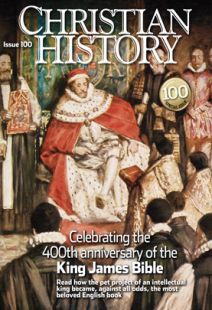They said it best
ENGLAND HAS TWO BOOKS: the Bible and Shakespeare. England made Shakespeare, but the Bible made England. — Victor Hugo (1802–1885)
The translation was extraordinarily well done because to the translators what they were translating was not merely a curious collection of ancient books written by different authors indifferent stages of culture, but the word of God divinely revealed through His chosen and expressly inspired scribes. In this conviction they carried out their work with boundless reverence and care and achieved a beautifully artistic result . . . they made a translation so magnificent that to this day the common human Britisher or citizen of the United States of North America accepts and worships it as a single book by a single author, the book being the Book of Books and the author being God. — George Bernard Shaw (1856–1950) Quoted in G. S. Paine, The Men Behind the King James Version (Grand Rapids, MI: Baker, 1959, 1977), pp. 182–183
It is the most beautiful of all the translations of the Bible; indeed, it is probably the most beautiful piece of writing in all the literature of the world. Many attempts have been made to purge it of its errors and obscurities. An English Revised Version was published in 1885 and an American Revised Version in 1901, and since then many learned but misguided men have sought to produce translations that should be mathematically accurate, and in the plain speech of everyday. But the Authorized Version has never yielded to any of them, for it is palpably and overwhelmingly better than they are, just as it is better than the Greek New Testament, or the Vulgate, or the Septuagint. Its English is extraordinarily simple, pure, eloquent, lovely. It is a mine of lordly and incomparable poetry, at once the most stirring and the most touching ever heard of. — H. L. Mencken (1880-1956). Mencken was the agnostic reporter for the Scopes trial and a literary critic.
The scholars who produced this masterpiece are mostly unknown and unremembered. But they forged an enduring link, literary and religious, between the English-speaking people of the world. — Winston Churchill (1874–1965) Olga S. Opfell, The King James Bible Translators (Jefferson and London: McFarland, 1982)
Over the past several centuries it’s been the single book in most households, an enormous force in shaping the development of the English language. Carried around the world by missionaries, it provided the base by which English is about to become the lingua franca of the world in the next century. Exploring it during this shoot {Ten Commandments} was one of the most rewarding creative experiences of my life. — Charlton Heston (1923–2008).
By Various
[Christian History originally published this article in Christian History Issue #100 in 2011]
Next articles
A nation on a hill?
The history of church-state relations in America has been both complicated and contentious
Gary Scott SmithHow the King James Bible was Born
King James gave the Puritans almost nothing of what they wanted, except a new Bible translation
A. Kenneth CurtisMaster of language: Lancelot Andrewes
Andrewes caught James’s eye as the perfect lead translator
Chris R. ArmstrongSupport us
Christian History Institute (CHI) is a non-profit Pennsylvania corporation founded in 1982. Your donations support the continuation of this ministry
Donate



